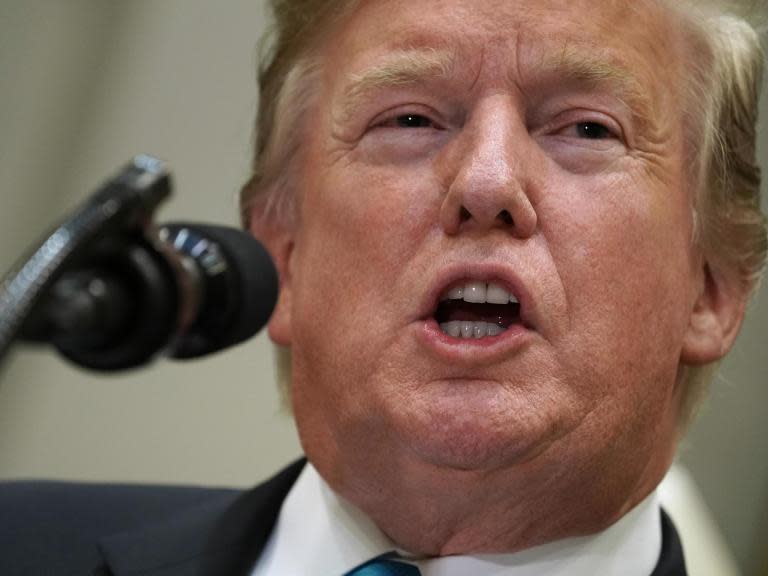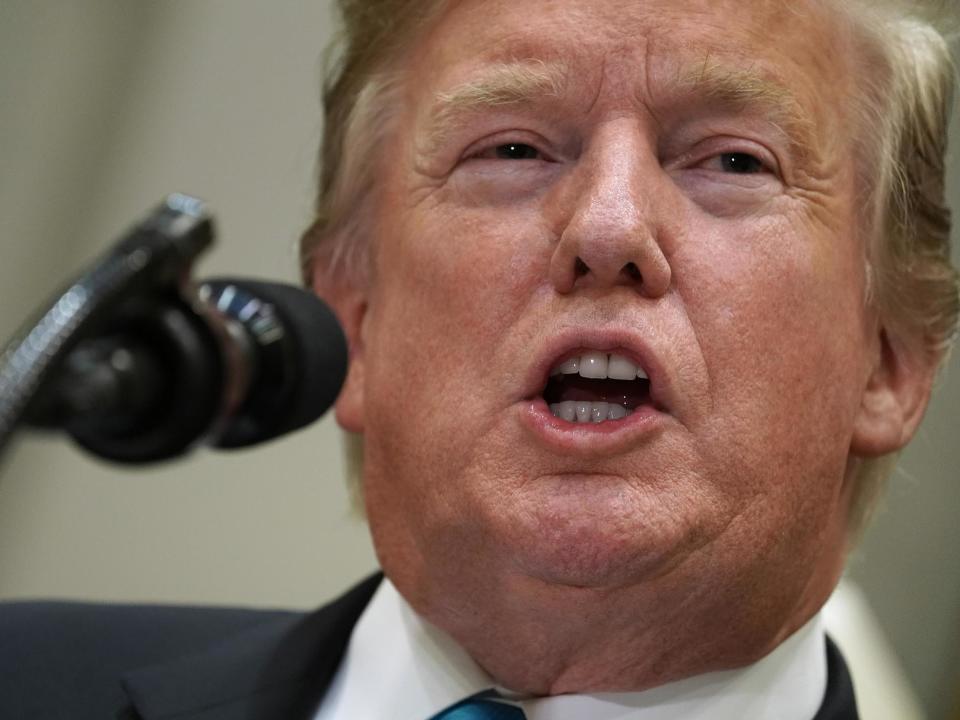Trump's tax cut law barely boosted growth or wages and is not paying for itself, independent congressional report finds
Donald Trump’s tax cut law – his signature achievement as president – has had little effect on GDP growth or wages and is failing to pay for itself, an independent congressional think tank has found.
Despite Mr Trump’s repeated claims the 2017 Tax Cuts and Jobs Act would help workers by providing “rocket fuel” to the US economy, a report by the bipartisan Congressional Research Service showed the law was more beneficial to investors, who launched a wave of corporate buybacks.
The conclusions were largely in line with predictions by critics of the legislation, and ran counter to claims by many Republicans who said the tax cuts would ultimately pay for themselves and end up providing big increases in wages.
"In 2018, gross domestic product grew at 2.9 per cent, about the Congressional Budget Office's (CBO's) projected rate published in 2017 before the tax cut. On the whole, the growth effects tend to show a relatively small (if any) first-year effect on the economy,” the report reads.
“Although growth rates cannot indicate the tax cut’s effects on GDP, they tend to rule out very large effects particularly in the short run.”
The authors, Jane Gravelle and Donald Maples, wrote in the report that although investment “grew significantly”, it did “not appear to be consistent with the direction and size” one would expect from the tax changes.
Wages, the report found, were not growing as quickly as the economy at large – two per cent in 2018 compared to 2.9 per cent GDP growth – with companies seeing a greater increase in earnings than employees, meaning that “ordinary workers had very little growth in wage rates”.
For workers paid by the hour, their real wages grew by just 1.2 per cent in 2018.
Despite the growing economy, the cuts only provided at best five per cent of the growth “needed to fully offset the revenue loss from the Act” – in other words 95 per cent of the increased deficit was not offset by the additional growth.
The report said there though there had been “significant” share buybacks, “relatively little was directed to paying worker bonuses, which had been announced by some firms”.
Addressing the report’s findings, senator Ron Wyden, the top Democrat on the senate finance committee, said: "Republicans made three unbelievable claims about their bill: It would pay for itself, raise wages by $4,000 and jump-start investment in the United States."
He added: "In fact, the tax cuts are paying for just 5 per cent of their cost — not 100 per cent. Workers did not see a significant wage increase — the tax cuts largely paid for stock buybacks that push CEO compensation even higher. And the tax cuts have had a negligible effect on investment in the United States."


